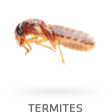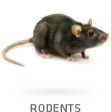10/10/2018
I don’t know about you, but my dogs are members of our family, and we consider them to be one of the kids. It’s officially snake season, and just the thought of one of my fur babies being bitten by a snake absolutely terrifies me! Snakes are most active now and through the warmers months, as they’re out looking for food to fill their empty tummies after hibernating all winter. Naturally, our four-legged friends like to explore their surroundings, whether it be inside your backyard, or the bushlands when out on a walk, but this is where the paths cross between our pets and snakes.
How to minimise the chance of a snake bite
Unfortunately, you can’t guarantee your pet is never going to be bitten by a snake, but you can, however, minimise these chances by implementing a few of the following precautions around the house;
Tidy up the yard – Maintain long grass by mowing the lawn regularly (especially if you live on a large property), Snakes love to hide so fill in any holes you have in the garden and don’t forget to remove any objects that could be used as a hiding place, e.g., buckets.
Clean up crumbs, dog biscuits & bird seed – spilled food and dog biscuits are what attracts rodents to your property, and rodents are snakes favourite prey. Eliminate rodent activity as much as you can, and you won’t give snakes a reason to come hunting for dinner. If you live on a property that stores hay for animals, keep your pets away from this area as it’s the perfect hiding place for these slithery reptiles.
Walk your dog on a lead – as we mentioned earlier, it’s natural for our pets to want to explore and sniff around, but by keeping them on a lead and by your side during their walks, they are less likely to get bitten as you can control the areas they go. Keep your dog away from high grass areas, holes and rocks, where snakes are most likely to be hiding.
Keep felines indoors – yes I know it sounds horrible, but by keeping your cats inside the house where ever possible you are limiting their chances of being bitten. Cats are hunting creatures by nature, and they love to hunt rodents which unfortunately is going to lead them right to the danger zone.
Don’t take matters into your own hands - a large number of snake bites occur when the snake feels threatened, so don’t try and catch the snake yourself, put your pets inside or away from the reptile and call a snake handler.
Signs of a snake bite
Is it not uncommon for your pet to appear recovered within 30 minutes of being bitten, but don’t assume your pet is fine, get to a Vet immediately. Depending on the type of snake will determine the symptoms and reactions your pet suffers. You may not be present when your pet is bitten by a snake, but there are several general symptoms that you can be on the lookout for.
* Sudden weakness, followed by your pet collapsing
* Shaking, trembling or muscle twitching
* Vomiting
* Sensitivity to light
* Blood in their urine
* Excessive drooling or frothing at the mouth
* Diarrhea
* Bleeding from the bite wound
My pet was bitten, what do I do now?
Stay Calm! You’re of no help to your pet if you’re frantic and not thinking rationally.
1. Have a quick look around, try and see if you can find the snake because identifying the reptile could help with your pet's treatment.
2. Restrict your pets activity/movement. Keeping them as still as possible with help to reduce the spreading and effects of the venom. Be mindful that your pet may be in shock, so their behaviour may be a little out of character, and even the most docile pets can lash out and bite when scared or in pain. Keep talking to them; they need the reassurance that you’re there with them.
3. Get to your local Vet, ASAP. If you have someone with you, get them to call ahead to the vets and let them know what’s happened that you’re on your way in. This will give them the best chance to be prepared for your pet's arrival.
4. Don’t clean the bite area, and don’t apply a tourniquet, as you could restrict blood flow to the area and cause tissue damage. You can apply a pressure bandage, but be careful not to apply this too tightly.
5. Don’t try to suck out the venom, your saliva contains bacteria and could make the situation worse by creating an infection.
6. Don’t try to clean up the bite wound, because your vet can take a swab of the venom using a snake detection kit and identify the snake and help speed up the treatment process.
With a little planning, awareness and precaution you can give your furry family members the best chance at never having to encounter the horrific ordeal of a snake bite. If you think you have a rodent issue, call the team at BP Direct on 9209 2030, for an obligation free quote, and discuss your treatment options today.
Return









